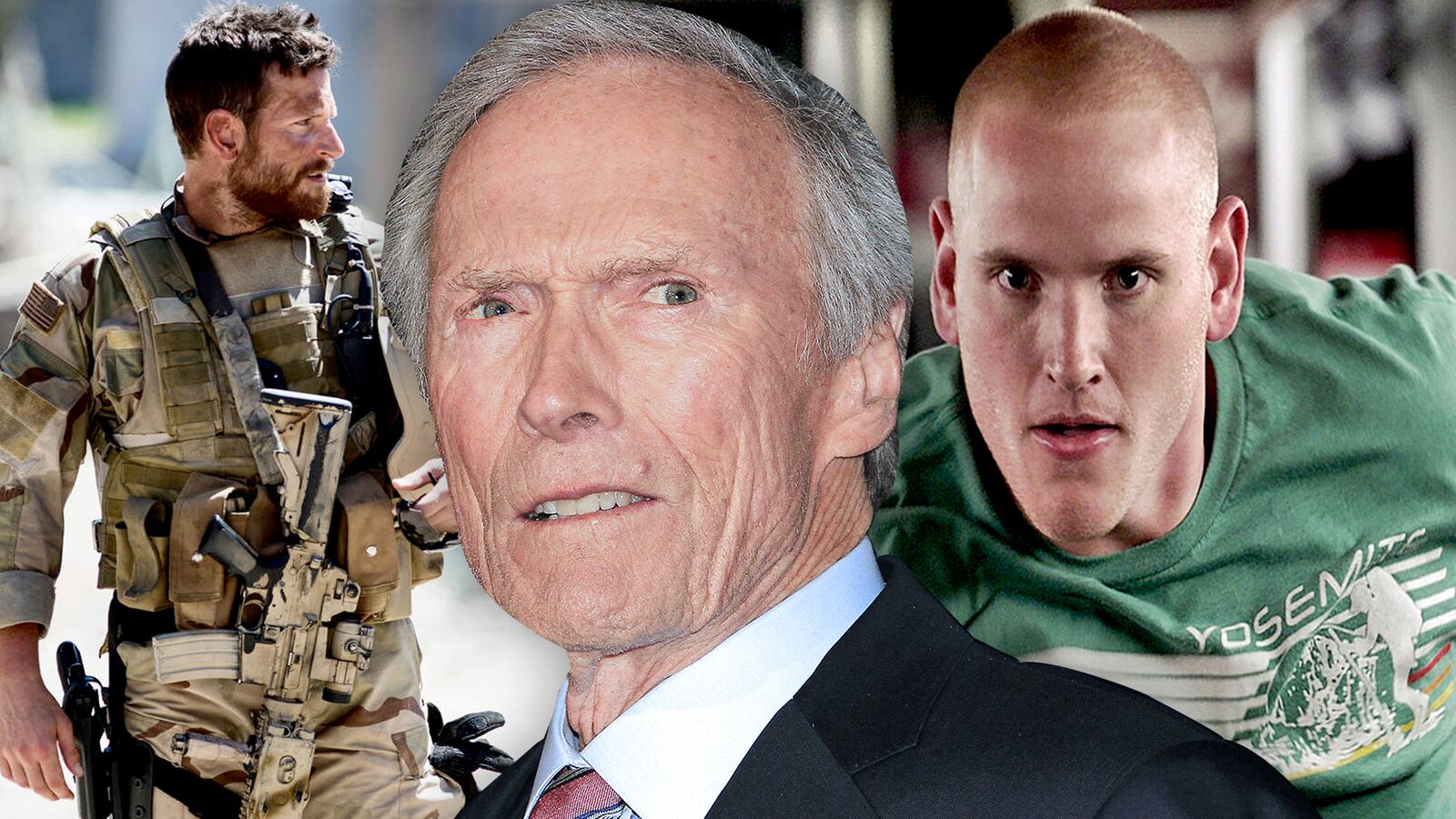Clint Eastwood is a living legend. He’s iconic as an actor and as a director; he’s the Man with No Name, he’s Harry Callahan, and he’s responsible for Unforgiven and The Bridges of Madison County. You’d never know that by watching his latest film, The 15:17 to Paris.
In the twilight of his career, Eastwood has leaned into a strange, blatant kind of jingoism that is difficult to reconcile with his earlier work. Unforgiven, for instance, was a marvel, deconstructing both the Western genre as well as Eastwood’s career and popular image, and even Eastwood’s more explicitly politically-geared work has left room for more nuance than his egregiously one-note recreation of the 2015 Thalys train attack.
As with most war movies, Flags of Our Fathers could easily have fallen into propaganda, but it’s a remarkably frank interrogation of the effects and politics of war. More importantly, it’s partnered with Letters from Iwo Jima, the rare American movie that takes a look at war from the opposing side. As such, it’s all the stranger to see a poster for Letters from Iwo Jima pop up as set dressing in The 15:17 to Paris, which, despite ending with President François Hollande’s speech about the importance of humanity over nationality or creed, does not share that same sentiment for anyone who isn’t American.
The 15:17 to Paris presents a picture of America that threatens to tip into outright caricature. As children, Spencer Stone, Anthony Sadler, and Alek Skarlatos are seen dressed in camouflage, playing “war” with model AK-47s and other firearms. The young Stone even shows off a shotgun, and is incredulous when the young Sadler says he’s never been hunting before. Though it’s arguably the modern equivalent of playing “Cowboys and Indians,” it’s still unsettling to see children toting assault rifles and shooting at each other, especially as gun control and violence remain such a huge problem in contemporary America.
Eastwood has always been fascinated with Americana—that is, America as part and parcel with the uglier parts of its history. The Western, after all, is a genre inextricably linked to a part of the country’s history that many seem intent to forget. The same goes for any story that touches upon modern warfare, as this film does (Stone and Skarlatos were both members of the U.S. Armed Forces), but that doesn’t seem to have crossed Eastwood’s mind. These Americans are touched by destiny—Skarlatos’ mother (played by Jenna Fischer) tells him that God told her that something exciting is waiting in his future, and Stone waxes philosophical about where he thinks his life is heading—and that’s that.
Even the flawed American Sniper provided a more complicated look at American machismo and so-called patriotism. The film, which told the story of Chris Kyle (played by Bradley Cooper), was criticized for casting Kyle in a heroic light. In the memoir from which the film was adapted, Kyle bragged about how many “savages” he’d killed while in Iraq and viewed war as a competition, trying to score more kills than his peers. He also exaggerated his military record and told a number of tall tales, including: traveling to New Orleans and shooting as many as thirty looters in the wake of Hurricane Katrina from atop the Superdome, punching out Jesse Ventura after he smeared the SEALs, and killing two carjackers who attempted to steal his truck. None of these things happened.
Others, however, argued that American Sniper had a different agenda, seeing it as an exploration of the “moral complexities” of war. Writing about the film for The Atlantic, Megan Garber questioned taking Kyle’s actions at face value. “Is [what he’s doing] heroism? Does it matter? This is one problem American Sniper suggests, with a culture that insists on treating ‘the troops’ as an anonymous collective: If everyone is a hero, then, heroes being what they are, nobody is.”
There are moments throughout The 15:17 to Paris that almost invite a similar dissection. The poster for Letters from Iwo Jima is on Stone’s bedroom wall, accompanied by a poster for Full Metal Jacket and an American flag. Full Metal Jacket is a film about the pointlessness of war, and Letters from Iwo Jima is a study in its complexity. It’s tempting to take these as knowing references, but Eastwood’s more recent works (including American Sniper) suggest that might not be the case.
The empathy and identification found in Letters from Iwo Jima is gone from The 15:17 to Paris. The countries that the three leads pass through are practically anonymous, as is the film’s portrayal of gunman Ayoub El-Khazzani (played by Ray Corasani). El-Khazzani is mostly seen in fragments. We see his shoes, his hands, his shoulders, but we’re almost never shown his face. If this anonymity is an attempt to preserve its sense of realism given that the three leads play themselves, it’s too little, too late. Apart from Fischer, Judy Greer, Thomas Lennon, Tony Hale, and Jaleel White also make appearances in the film. They’re too immediately recognizable to ignore, and on top of that, they act circles around Stone, Sadler, and Skarlatos (who, it should be noted, are not to blame for this failed attempt at stunt casting).
The others involved in the Thalys attack—“Damien A.,” Mark Moogalian, and Chris Norman—are also largely nonentities. Only Moogalian, who also plays himself but has received far less media attention, is referred to by name, and it’s a move that feels slightly disingenuous as he is the other American involved in the incident. Damien was French, Norman was British, and both are barely seen. This isn’t a film celebrating humanity; it’s a film celebrating a very specific take on American values and culture.
Look, it’s impossible to dismiss Eastwood’s work given its breadth and emotional heft. Sully, which was released in 2016, was a proper return to form after American Sniper, but it feels like an exception rather than the rule now that it’s been followed by the dead on arrival 15:17 to Paris. With its exaggerated, empty patriotism and mundanity, it recalls his rambling appearance at the 2012 Republican National Convention (you know, the infamous empty chair speech). It’s a shame, because as Letters from Iwo Jima proved, he’s a filmmaker capable of so much more.






